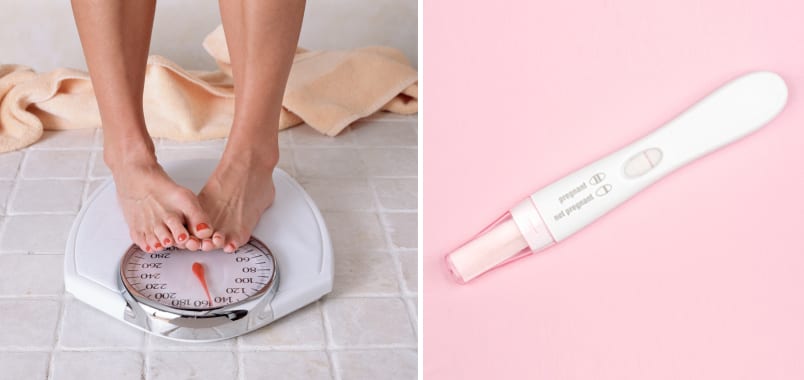Nearly all of us have wanted to drop a couple of pounds at some point in our lives. Unfortunately, many women learned about dreaded “d” word even before they knew their multiplication tables…. but did you know that dieting at a young age can have serious health consequences?
In fact, drastic weight changes and excessive dieting can even be associated with problems getting pregnant and even infertility. Here are a few reasons why yo-yo dieting may be to blame for pregnancy struggles:
Disruptions in Ovulation
To become pregnant, women need to actively and consistently ovulate. Ovulation is the release of an egg that is ready to be fertilized to become an embryo. Although it seems simple, ovulation is the result of a sophisticated cascade of hormones secreted by glands in the brain and the ovaries. The hypothalamus, one of these glands, responsible for hormone secretion, can be directly affected by significant changes in weight and deprivation of nutrients that occur during dieting. As a result, it may shut down and stop secreting the hormones necessary to ovulate.
Drastic Weight Changes
Another frequent problem with dieting is the drastic changes in weight. If you’re drinking lemonade for ten days, you will certainly lose weight. The problem becomes you also lose vital nutrients and deprive your body of protein, and healthy fats necessary for proper cell development and functioning. As you gain weight back, or put on extra weight the levels of estrogen may increase, signaling the body to press pause on normal menstruation.
Stress
Everyone has heard “don’t stress, it will be harder to get pregnant”. And then of course, you stress more. Despite increasing attention placed on stress and health consequences, the relationship between stress and infertility is often under reported. While dieting may get you to an ideal weight, it puts an increased amount of stress on the body. During these times, the body releases stress hormones and this can interfere with normal ovulation. Additionally, dieting can sometimes cause women to lose too much weight. A small decrease of even 10% under a woman’s ideal body weight can cause menstrual irregularities.
The Role of Insulin
Recent studies suggest that almost 5 million women in the US suffer from Polycystic Ovarian Syndrome. Women with PCOS are frequently overweight, have irregular periods, and have disruptions in ovulation. Unfortunately these women are often unaware of their condition, and from a young age can begin excessive dieting in order to lose weight. Insulin plays a pivotal role in the mechanism of PCOS on infertility, and women with the disease frequently have insulin resistance, which can affect the secretion of other hormones that cause ovulation. Frequent shifts in calories and weight loss and gain can further affect insulin resistance, which may worsen a woman’s chance of becoming pregnant with PCOS. Speak to your physician about diagnosis and options for treatment.
Do you know anyone who had trouble conceiving after years of yo-yo dieting?





